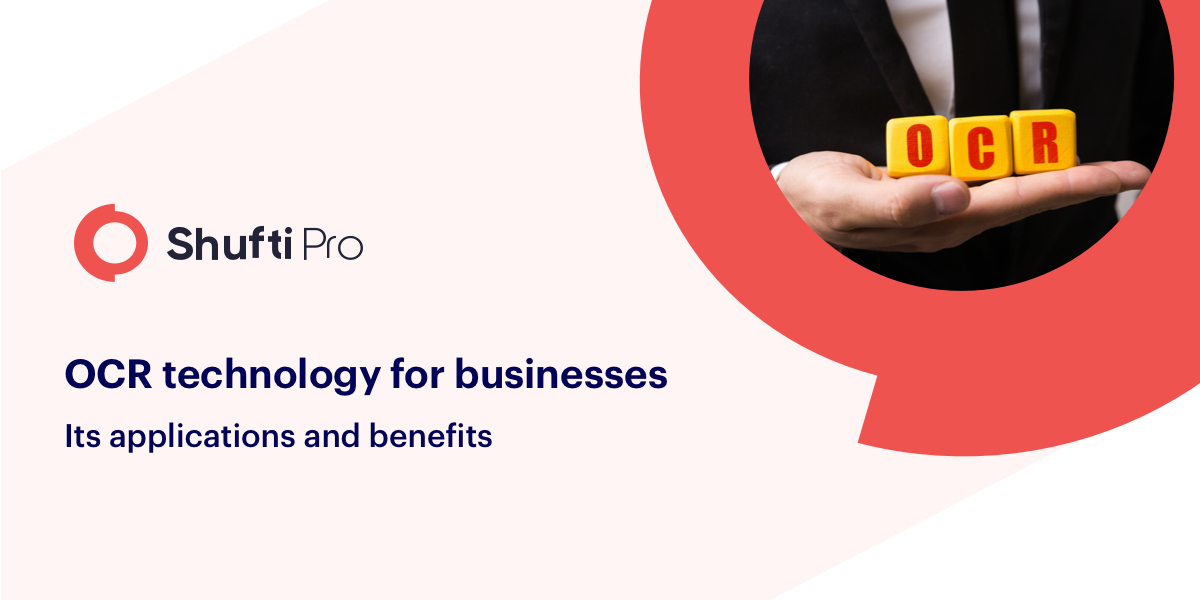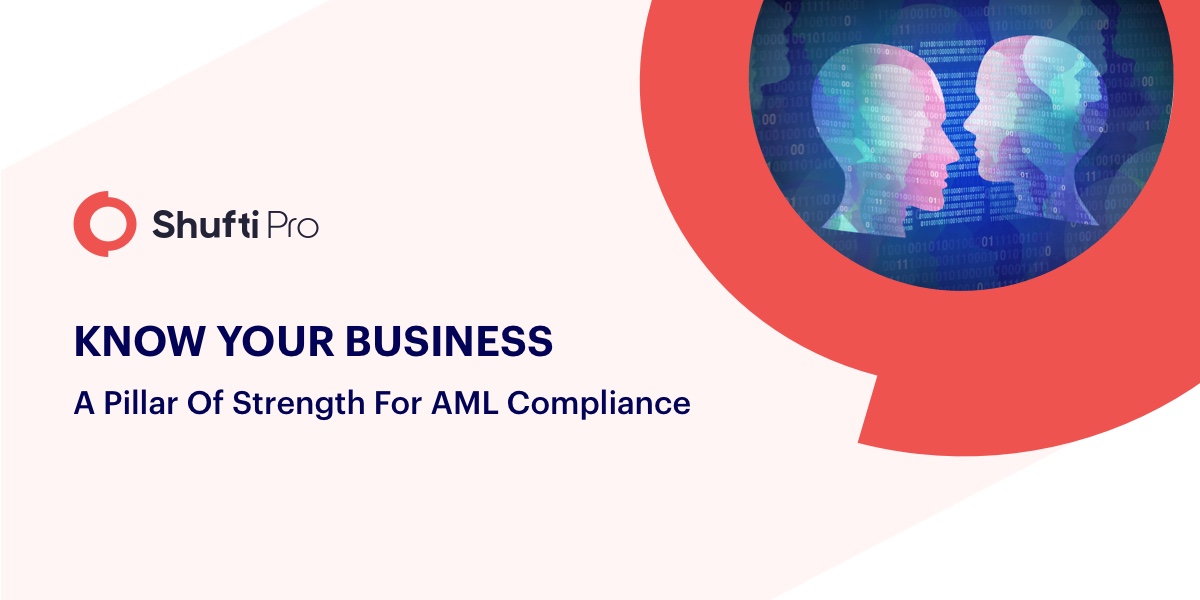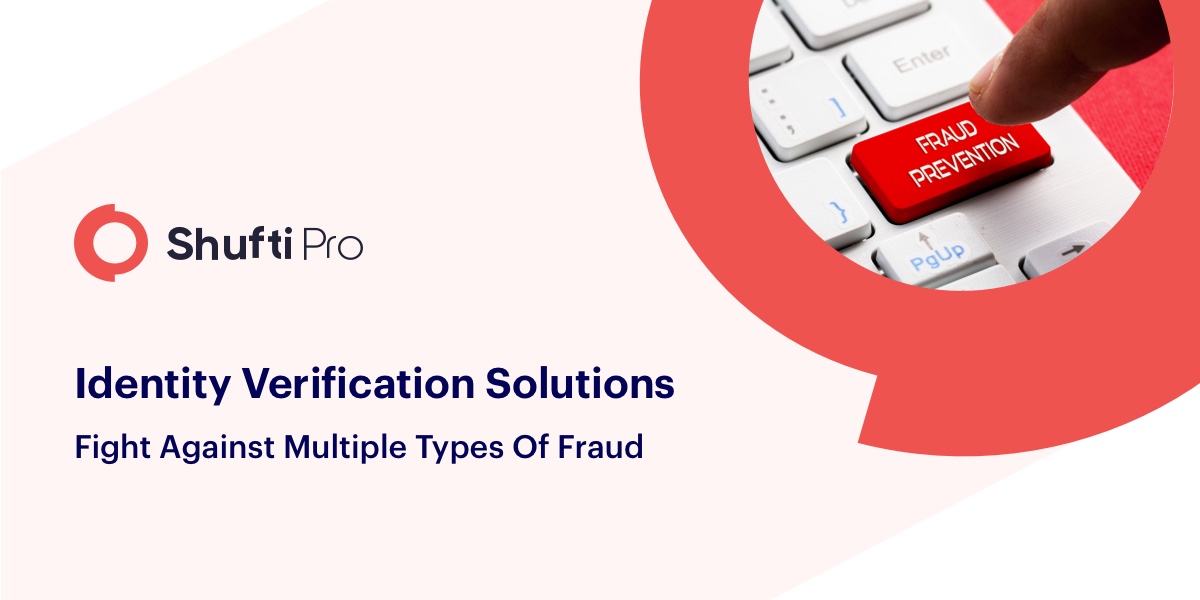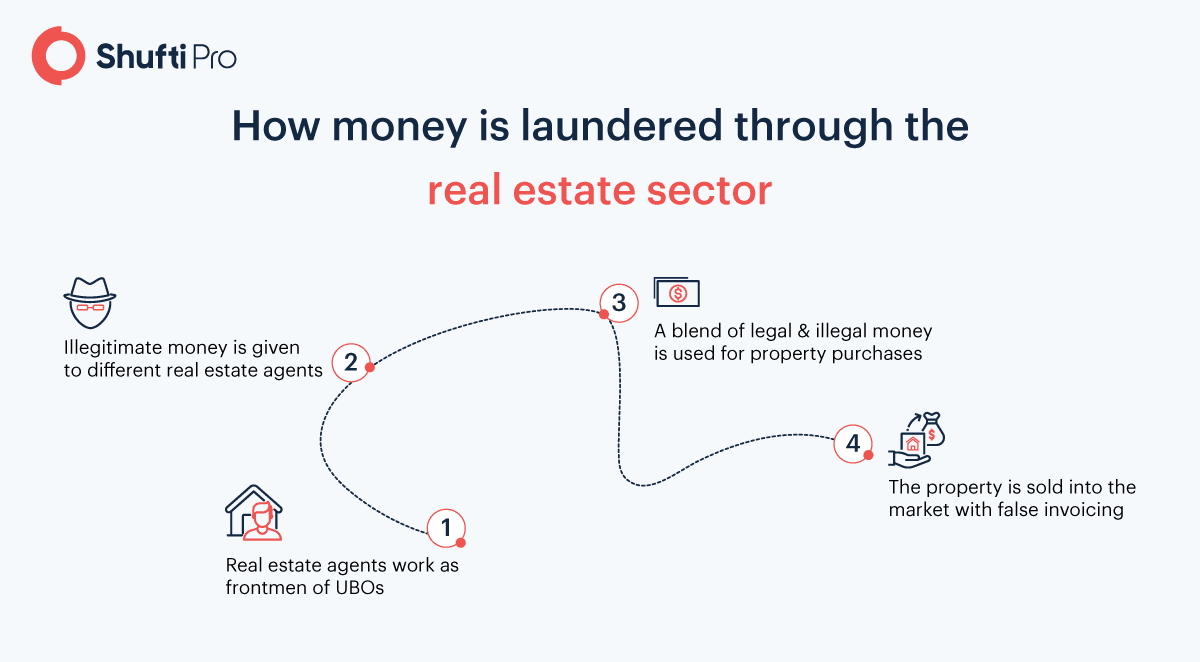Blog
An Insight Into AML Compliance Concerns Amid Russia Sanctions
With Russia’s attack on Ukraine, the international financial landscape is facing concerns of comp...
 Explore More
Explore More
Blog
Top 10 Technology Trends in the Travel Industry to watch for in 2022
The travel industry is one of the worst-hit sectors from the coronavirus outbreak, which disturbe...
 Explore More
Explore More
Blog
5 Industry Leaders Shared Their Insights on the Future of Biometrics
Modern technology has brought several conveniences to life. From the ease of working at home to s...
 Explore More
Explore More
Blog
The UK “Children’s Code” – Laying New Grounds for Age Verification
A 12-month grace period for compliance with a set of standards, introduced for protecting childre...
 Explore More
Explore More
Blog
KYC Verification: Eliminating Fraud from Crypto Exchanges
Despite persistent volatility, the crypto market continues to yield profits. Whilst the market wi...
 Explore More
Explore More
Blog
Halloween and the Spooky Scams – How identity verification helps?
Halloween is just around the corner and so do the scammers ready to exploit the opportunity. Whic...
 Explore More
Explore More
Blog, Financial Crime / AML
Impact of Bitcoin Addresses’ Sanctions on IDV Providers
The technology enhancement is being done at an exponential rate around the world. As the tech kee...
 Explore More
Explore More
Blog
Understanding and Implementing Age Verification Requirements in Accordance with the FDA Deeming Rule
Youth is considered the most valuable asset for any country, and it is the government’s responsib...
 Explore More
Explore More
Blog
A Comprehensive Guide to Choosing a Perfect e-KYC Solution for Businesses
Most of our processes, including financial and business dealings, have now shifted to online plat...
 Explore More
Explore More
Blog
Risk Assessment – Building Trust in Financial Institutions
For financial institutions to hold onto their customers, they must build and conserve advanced le...
 Explore More
Explore More
Blog
Shufti’s Insights on Enhancing Customer Onboarding Experience
The digital world nowadays requires a lot of effort from businesses to ensure customer satisfacti...
 Explore More
Explore More
Blog
An Insight Into AML Compliance Concerns Amid Russia Sanctions
With Russia’s attack on Ukraine, the international financial landscape is facing concerns of comp...
 Explore More
Explore More
Blog
Know your transactions (KYT) boosts your KYC efforts
Integration problems, lack of adequate attributes, and how Know Your Customers (KYC) are handled,...
 Explore More
Explore More
Blog
3 ways to protect your organizations from coronavirus cyber security threat
Due to the spread of the coronavirus, the world adapts to new ways of working. Cyber criminals ...
 Explore More
Explore More
Blog
Identity Verification and Prevailing Crimes – How Shufti’s Proof of Verification Services Can Help
With growing digitization, emerging technologies, and increased use of online transactions, a hug...
 Explore More
Explore More
Blog
e-IDV: The Key to Fraud Prevention in FinTech
After years of enormous growth, investment in the fintech market declined in 2022. Susceptibility...
 Explore More
Explore More
Blog
OCR technology for businesses – Its applications and benefits
Optical Character Recognition (OCR) technology provides a business solution that automates data e...
 Explore More
Explore More
Blog, Reg Tech
Here’s How Compliance to KYC and AML Regulations May Help Crypto Rebound
Cryptocurrency was the talk of the day in the months and even years leading up to the present wee...
 Explore More
Explore More
Blog
Online Identity Verification – How to Secure Online Gaming & Gambling Platforms
Online gambling is the way to go for betting enthusiasts nowadays and brings both convenience and...
 Explore More
Explore More
Blog
Digital Document verification – an efficacious method of ID card scanning
Businesses, banks, airports, social media platforms, e-commerce stores all need to be sure of the...
 Explore More
Explore More
Blog
Online Privacy, Security & Inclusivity in a Digital World: Congress Hearing 2021
On 16 July 2021, the US Financial Services Task Force on Artificial Intelligence held a virtual h...
 Explore More
Explore More
Blog
On-Premises Identity Verification – A Solution to Prevent Data Breaches
From virtual modes of communication to digitised solutions for operating efficiently, the perks o...
 Explore More
Explore More
Blog
AML Compliance – Global Watchlists that Businesses Need to Consider
Coordinated sanctions after the Russian invasion of Ukraine have made the headlines due to their ...
 Explore More
Explore More
Blog
Shufti’s Insights on Enhancing Customer Onboarding Experience
The digital world nowadays requires a lot of effort from businesses to ensure customer satisfacti...
 Explore More
Explore More
Blog
How to Combat Document Forgery in 2025 and Beyond
Why This Update Matters
Digital document forgery is no longer a fringe threat it strikes every fi...
 Explore More
Explore More
Blog
Cyber Monday Scams on the Rise Due to COVID-19
Thanksgiving – a day that reminds us of all the bounties of Mother Nature that we should be...
 Explore More
Explore More
Blog
Video KYC: Taking Traditional KYC to the Next Level
Know Your Customer (KYC) has undergone continuous evolution since its inception. Its purpose is t...
 Explore More
Explore More
Blog
AML Screening for Online Gambling Platforms – Placing the Bets on Regulatory Compliance
With technology evolving every day, online gambling is one of the sectors that has revolutionized...
 Explore More
Explore More
Blog
The New Face of Authentication (*hint: you’ve seen it before!)
Companies face the daunting tasks of securing their data against the evolving threat of fraud whi...
 Explore More
Explore More
Blog
Understanding False Positives in AML Transaction Monitoring
Financial institutions such as banks, neo-banks, insurance companies, investment companies, finte...
 Explore More
Explore More
Blog
Biometric Identification revolutionizing the world in 2020
Every day we come face to face with new technology innovations that leave us awestruck. From the ...
 Explore More
Explore More
Blog
The ‘What’, ‘How’ and ‘Why’ of Sanctions Screening | A Basic Guide
International collaboration and cross-border transactions have become the norm in our interconnec...
 Explore More
Explore More
Blog, Identity & KYC
Identity Verification – Key to Eliminate BEC Fraud
Fraud prevention and cybersecurity are the major concerns of the companies in the digital era. No...
 Explore More
Explore More
Blog
Know Your Players: Why KYC is Necessary for Gaming and Gambling
The post-COVID-19 era has witnessed a remarkable surge in the e-sports and gaming sectors. This t...
 Explore More
Explore More
Blog
AUSTRAC’s ML/TF Risk Assessment Report on Foreign Bank Branches [Part 3]
This blog makes the third chapter of our four-part series on AUSTRAC’s report on the Banking Sect...
![AUSTRAC’s ML/TF Risk Assessment Report on Foreign Bank Branches [Part 3] AUSTRAC’s ML/TF Risk Assessment Report on Foreign Bank Branches [Part 3]](https://shuftipro.com/wp-content/uploads/image-17-2.png) Explore More
Explore More
Blog, Online Marketplace
Know Your Customer Verification for Charity Organisations
They say no good deed goes unpunished, if we were to take a look at it literally the frauds that ...
 Explore More
Explore More
Blog
Biometric Authentication: Use Cases and Advantages
What is Biometric Authentication?
Biometric authentication refers to the process of using unique ...
 Explore More
Explore More
Blog, Business Technology
Fraud Prevention in Fintech Industry
The FinTech industry has really made its mark in the last couple of years. FinTechs have been pro...
 Explore More
Explore More
Blog
Digital Passports Driving the need for Biometric Verification at Airports
Digital or chipped biometric passports have automated the verification process at airports. The e...
 Explore More
Explore More
Blog
4 Industries Where OCR Technology Can Work Wonders
Today, online businesses need to meet the constantly evolving customer needs to survive market co...
 Explore More
Explore More
Blog
New Regulatory Initiatives to Revamp the US Crypto Landscape
With digital currencies gaining prominence, the US financial landscape has seen major transformat...
 Explore More
Explore More
Blog, Online Marketplace
Fraud Prevention in Real Estate Industry
Fraud prevention tools that include3rd-party KYC service providers are essential in the real esta...
 Explore More
Explore More
Blog
Digital Document verification – an efficacious method of ID card scanning
Businesses, banks, airports, social media platforms, e-commerce stores all need to be sure of the...
 Explore More
Explore More
Blog
7 Trends in Identity Verification Solutions to look for in 2020
Internet is an anonymous space where people can hide their identities and come up with bizarre ps...
 Explore More
Explore More
Anti Money Laundering, Blog, Financial Crime / AML, Identity & KYC
Know Your Business-Pillar of Strength To AML Regulations
Moving in the world of technology, where every industry is going digital, there has been very les...
 Explore More
Explore More
Blog
A Guide to Understanding KYC in Banking
2022 has witnessed a rise in the number of fraudulent cases by 18% compared to 2021, damaging bus...
 Explore More
Explore More
Blog, Fraud Prevention
Identity Theft – One Fraud Multiple Facets
Identity theft is a global crime. All types of identities, including the financial, medical and b...
 Explore More
Explore More
Blog
ID verification Services – Why Paper IDs are inferior to Digital Cards?
ID verification services are at the forefront of making online marketplace transparent and ensuri...
 Explore More
Explore More
Blog
Smart Growth in Uncertain Times: Powered By Shufti
Just five years ago at the onset of the COVID-19 pandemic, the global economy was struck by the h...
 Explore More
Explore More
Blog
A Comprehensive Guide to Understanding Ultimate Beneficial Owners (UBOs)
Identifying UBOs and their control over a business is crucial for financial firms to meet regulat...
 Explore More
Explore More
Blog
The UK, US & Singapore – A Spotlight on the Crypto Regulations
Non-compliance with anti-money laundering regulations has been an issue for the finance and crypt...
 Explore More
Explore More
Blog
KYC Checklist: A Comprehensive Guide for Businesses and Financial Institutions
In the ever-evolving landscape of finance, having a solid defence against financial crime is cruc...
 Explore More
Explore More
Blog
Biometrics technology a key to key-free world
In 2016, the biometric market in the United States reached $3.52 billion U.S Dollars and is expec...
 Explore More
Explore More
Blog
The ‘What’, ‘How’ and ‘Why’ of Sanctions Screening | A Basic Guide
International collaboration and cross-border transactions have become the norm in our interconnec...
 Explore More
Explore More
Blog, Online Marketplace
KYC for Banks: Reducing financial risk with a perfect digital solution
The banking sector has to tread a very balanced path between compliance regulations and customer ...
 Explore More
Explore More
Artificial Intelligence, Blog
What are the 3 Stages of Money Laundering and How Can AML Checks Combat Fraud?
Criminals and organized crime groups have become creative and sophisticated in concealing sources...
 Explore More
Explore More
Blog
Understanding Risk Assessment in the Gambling Sector – 2025 Edition
Online gambling revenue is on track to exceed $150 billion globally by 2025, with Europe alone ge...
 Explore More
Explore More
Blog
Protect Your Business Against Identity Theft with Face ID Check
The efficacy of biometric authentication becomes questionable in the face of facial ID checks. It...
 Explore More
Explore More
Blog
OCR Solution: A Must-have for Every Business to Automate Workflows
Moving documents and files from one format to another is necessary during transactions and busine...
 Explore More
Explore More
Blog
4 Reasons why KYB is Inevitable for your Business
When it comes to corporate collaborations, Know Your Business (KYB) is the ultimate source of sec...
 Explore More
Explore More
Blog
Card-Not-Present (CNP) Fraud – How to Prevent False Chargebacks?
The eCommerce industry continues to grow rapidly, so are fraudulent activities. According to Stat...
 Explore More
Explore More
Blog
FATF’s High-Risk Jurisdictions [2022 Update] – How Business Can Comply
Paris-based global watchdog FATF (Financial Action Task Force) maintains lists of countries that ...
![FATF’s High-Risk Jurisdictions [2022 Update] – How Business Can Comply FATF’s High-Risk Jurisdictions [2022 Update] – How Business Can Comply](https://shuftipro.com/wp-content/uploads/b-img-fatf.png) Explore More
Explore More
Blog
Estonia’s AML Act Amendments – Securing Virtual Currencies in 2022
Estonia’s financial institutions are developed and ensure transparency as its laws are well-defin...
 Explore More
Explore More
Blog
Identity verification solutions to fight against faces of fraud
In this digital world, billions of smart devices are circulating, connecting and communicating wi...
 Explore More
Explore More
Blog
Shufti Marks 4 Years of Streamlining KYC and AML for Global Businesses
October 2021 marks four complete years since the launch of Shufti. As years begin to stack, t...
 Explore More
Explore More
Blog
Age Verification: Use Cases, Significance and Regulations
This pillar post talks about the significance of digital age verification, how it works, what are...
 Explore More
Explore More
Blog
KYC/AML Compliance – An Anti-fraud Mechanism for E-wallets
As more and more countries had to enforce lockdowns because of the pandemic, remote working and d...
 Explore More
Explore More
Blog
Safeguarding Financial Operations with Transaction Monitoring and AML Screening
To enhance the power of anti-money laundering regulation, transaction monitoring systems have evo...
 Explore More
Explore More
Blog
How Age Verification Protects the E-commerce Industry From Potential Risks
Online shopping has become the new normal since the COVID-19 pandemic struck. With digital produc...
 Explore More
Explore More
Blog
Trade based money laundering – Challenges, detection and prevention
Back in 2006, Financial Action Task Force (FATF) emphasised on new measures and strategies for ba...
 Explore More
Explore More
Blog
Enhancing Trust in eCommerce with AI-powered Identity Verification
eCommerce in today’s world involves utilizing evolving technologies to ensure convenience for cus...
 Explore More
Explore More
Blog
Key Takeaways from Shufti’s Global Identity Fraud Report 2020
After the rollercoaster year 2020, Shufti hopes this year will be less distressing for every...
 Explore More
Explore More






































![AUSTRAC’s ML/TF Risk Assessment Report on Foreign Bank Branches [Part 3] AUSTRAC’s ML/TF Risk Assessment Report on Foreign Bank Branches [Part 3]](https://shuftipro.com/wp-content/uploads/image-17-2.png)
























![FATF’s High-Risk Jurisdictions [2022 Update] – How Business Can Comply FATF’s High-Risk Jurisdictions [2022 Update] – How Business Can Comply](https://shuftipro.com/wp-content/uploads/b-img-fatf.png)









